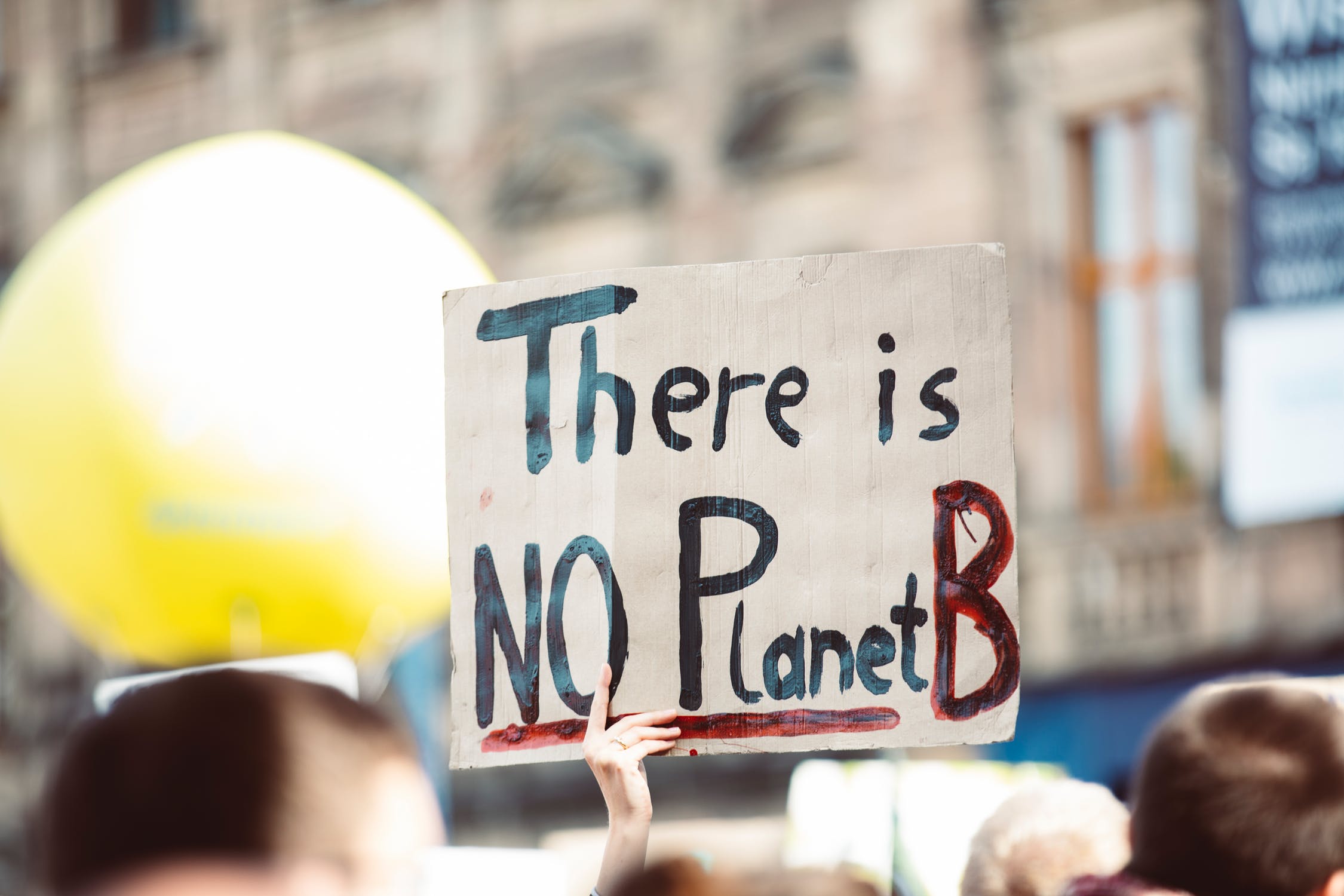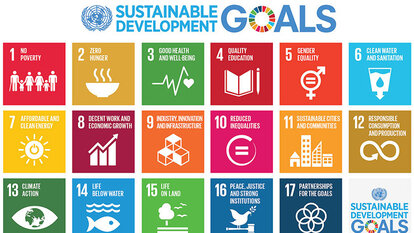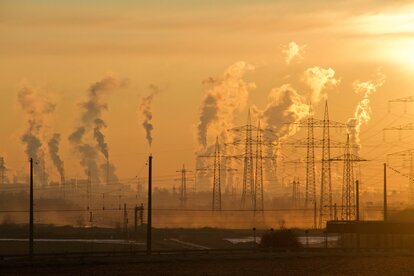Agenda 2030
A new impetus to meet the 2030 Agenda

Climate change march
© PexelsThat the world is not doing well is no secret. That the latest calamities -COVID19 and the war unleashed by Russia's invasion of Ukraine, in particular- are contributing to the deterioration of the situation is also a truism. That the European and Mediterranean scenario is particularly sensitive to such a cluster of upheavals would therefore be the logical conclusion to draw from such an observation.
Almost half the time has passed since 25 September 2015, when more than 150 heads of state and government approved the 2030 Agenda and, within it, the 17 Sustainable Development Goals (SDGs), by all accounts the most ambitious United Nations project for the 21st century. There are therefore just eight more years to achieve these 17 goals, broken down into 169 targets, whose achievement should lead to a world where poverty is eradicated, where respect for human rights is fully implemented, where global economic development is fully accepted, sustainable and respectful of the planet, in short, a better world for the more than 9 billion human beings who are estimated to inhabit the Earth by the middle of this century.
In the trans-Mediterranean sphere, it is clear that this horizon needs a new impetus, initiatives that show that, far from giving up in the face of the scale of the latest crises, the countries on both sides of the Mediterranean and their inhabitants are ready to turn the Euro-Mediterranean area into the better world that was their ambition when they signed up to such a gigantic programme.

UN Sustainable Development Goals.
© United NationsProgress and setbacks of the crisis
Progress on goals 3 (health and well-being), 5 (gender equality), 7 (affordable and clean energy) and 17 (partnerships to achieve the goals) is certainly undeniable. COVID19 has been a brutal setback that has shaken the entire health structure of our societies, but it has also become a spur to reposition the importance of biomedical research, primary care and nursing homes and homes for the elderly, all of which will now require appropriate renewal, which some countries have already put in place.
The same applies to progress in gender equality. The gender gap in employment has narrowed considerably, women's representation in parliaments has increased significantly and there has also been an increase in their presence in managerial positions, both in the various public administrations and in private sector companies. In this regard, the latest Grant Thorton report "Women in Business" states that by 2021, globally, 9 out of 10 companies will have at least one woman in their top management teams. This is a great advance, especially if we take into account that just five years ago, in 2017, this was only the case in 66% of companies. The same report highlights that from 2019 to 2021 the percentage of female CEOs and managing directors has increased from 15% to 26%.
Despite the energy crisis triggered in Europe by the war in Ukraine and the sanctions on Russia, there has been undeniable progress globally in people's access to electricity, accompanied by improvements in energy efficiency. And finally, net flows of development aid are increasingly localised in the countries and populations most in need, which favours the effectiveness and real impact of resources.
However, having outlined the chapters where improvements can be seen, there are many others where efforts will have to be redoubled if the trend is to be reversed. The most flagrant case is Goal 1, which aims at the total eradication of poverty. There is no doubt that the wars and conflicts that are raging in so many parts of the world are the cause of mass exoduses, many of whom are heading towards the Mediterranean basin by all kinds of routes, most of them converging in Europe. Millions of people carry with them the general tragedy of their exile, their vulnerability and helplessness, and the immense emotional burden of their own personal drama. When, in the aftermath of the 2008 financial crisis, both in Africa and Latin America, new avenues of economic development were opened up, poverty declined dramatically, heralding an unstoppable trend towards its near eradication by 2030. The pandemic first, and the simultaneous and subsequent wars have reversed the trend, to the point where it is predicted that more than 60 million new people could fall into poverty, which would constitute the first increase in poverty on a global scale so far in the 21st century.
For the same reasons, the forced displacement of large populations and the destruction of land and means of cultivation are wreaking havoc, making it very difficult to achieve Goal 2, the eradication of hunger. Ukraine, one of the world's great granaries, has stopped producing a large part of its oil and cereal crops, and its exports have been stranded by the destruction or blockage of its Black Sea outlets. The consequences are being felt in both southern Europe and North Africa, major consumers of Ukrainian foodstuffs, especially as both sides of the Mediterranean have suffered dramatic and persistent droughts, and the advance of desertification is now a supposedly unstoppable phenomenon.

More than wars, the main threat remains climate change.
This phenomenon has a significant impact on another major goal of the 2030 Agenda, Goal 13 on environmental protection and climate change. Europe's efforts to reduce pollutant emissions in particular are being held back to a large extent by the lack of such efforts in other parts of the world. The UN's own reports reveal that the global community has little prospect of reaching both the 1.5°C and 2°C targets called for in the Paris Agreement, while at the same time a new heat record is set every year.
Although the tragedy of war may be pushing other issues out of the daily news agenda, the most serious and pressing problem facing the world remains that of climate change, with all its attendant consequences. In addition to desertification and the more than foreseeable famines, target 14 concerning the state of the oceans is more than worrying. Systematic measurements by the various environmental institutes agree that they are suffering from an unsustainable degree of depletion, environmental degradation and carbon dioxide saturation and acidification.
The annual rate of depletion of the planet's resources is also disheartening. The date by which the 7.5 billion human beings use up all that the world produces registers a noticeable decline every year. Last 2021, we had already used up these annual resources by the end of July, and this year, 2022, the date is likely to be anticipated once again. In short, the Earth is becoming increasingly overexploited in all its facets and its risk of collapse is obviously growing ever closer.
Having described the situation, we must reiterate the urgency of pushing forward the new initiatives that are needed to change the situation. To give up on the 2030 Agenda and the achievement of its 17 goals would already be to admit defeat and to join those who do not consider man to be sufficiently aware, rational and capable of righting the course and being master of his own destiny. That cannot be an option.
